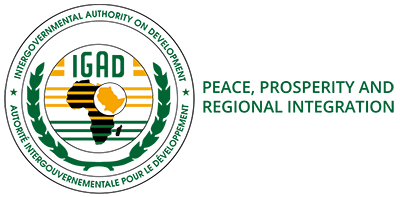Kenyans Students could soon be allowed to study in any country within the Inter-Governmental Authority Development (IGAD) if the current ongoing proposal to harmonize regional qualifications will go through.
IGAD’s member states include Kenya, Somalia, Ethiopia, Sudan, Djibouti, Uganda, Eritrea and South Sudan.
While attending the second regional consultative meeting on the proposed IGAD Regional Qualification Framework at Nairobi’s Hilton Hotel on the 24th of May 2022, the Kenya National Qualification Authority (KNQA) Director-General and Chief Executive Officer, Dr Juma Mukhwana said that a regional qualification framework could help citizens from any member state to work and continue learning in any IGAD member state without any obstacles as it is the case at the moment.
“Each member state will come up with its own qualification framework that will be aligned to the IGAD regional framework. The reason for this is that we have many citizens moving across the IGAD borders for various reasons. The whole idea is to make it easier for one to move across the regions with his or her qualifications to work or for further studies,” said Dr Mukhwana.
Besides, Mukhwana said that the regional framework would be in place there will be standards that will be set and harmonize the country’s qualifications to make it easier for one to move across the IGAD member states for work and studies.
The KNQF is based on the foundation of standardizing and harmonizing the country’s qualifications by putting a system in place to set standards that define the expected knowledge, skills and understanding required for labour market employment, self-employment or advanced education within the Kenya education and training system and beyond the country’s borders.
In 2018 the KNQA started the Kenya National Qualifications Framework (KNQF) which is constituted of the principles and guidelines by which records of learner achievement are registered to enable national recognition of the acquired skills and knowledge and thus ensuring that an integrated system that encourages life-long learning.
The KNQF comprises ten levels of competence descriptors for each level and the National Award; which makes it easier for students to progress smoothly to higher levels of education.
A person’s skills can be equated and awarded certificates to allow students to proceed to higher qualifications and be remunerated accordingly.
When coming up with the ten levels of career progression pathways, the authority used the respective competence descriptors and medications used by the prominent regulatory bodies. These include the South African Qualifications Authority, Mauritius Qualifications Authority and New Zealand Qualifications Authority instead of starting afresh using the occupational analysis approach. This means that after one undergoes one level of training, he or she will be awarded a certificate that will allow him or her to progress to another level.



Comments are closed.